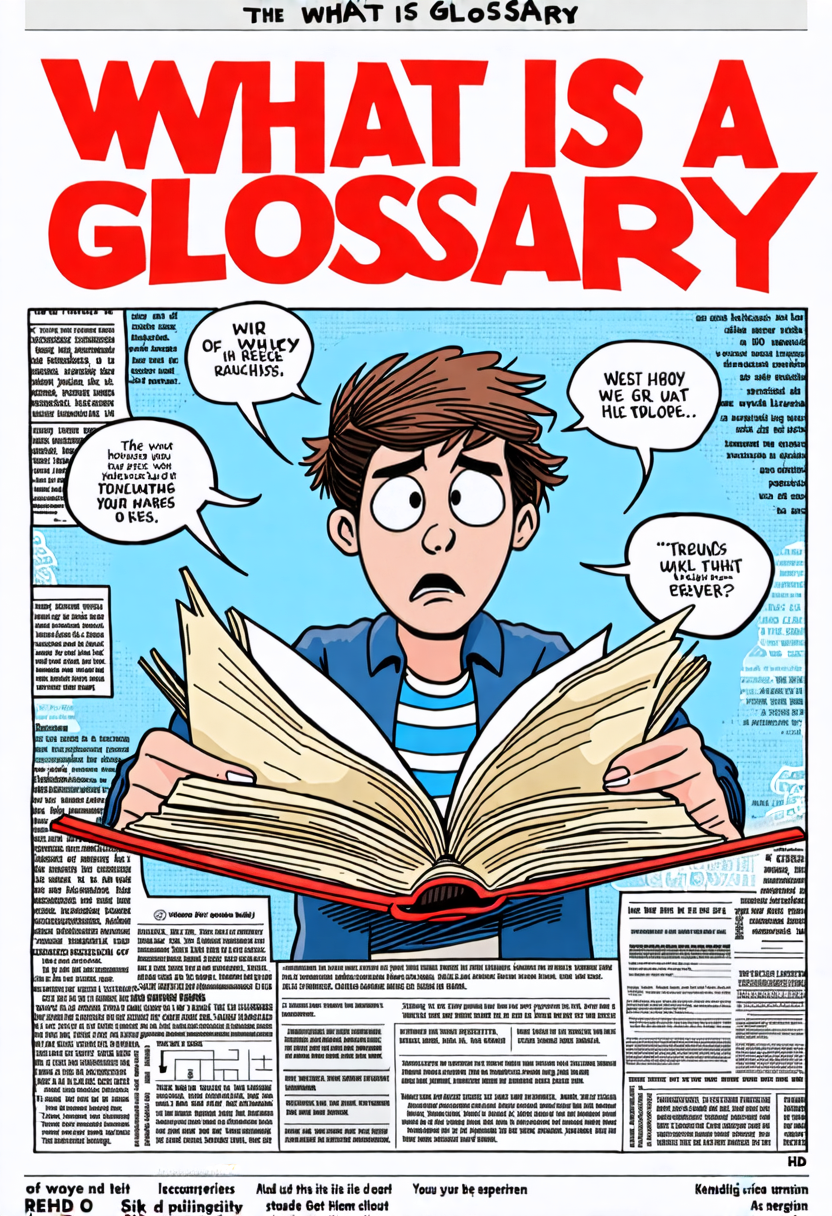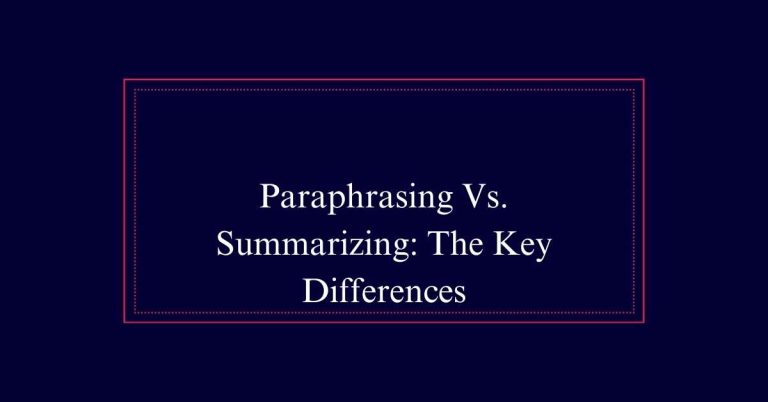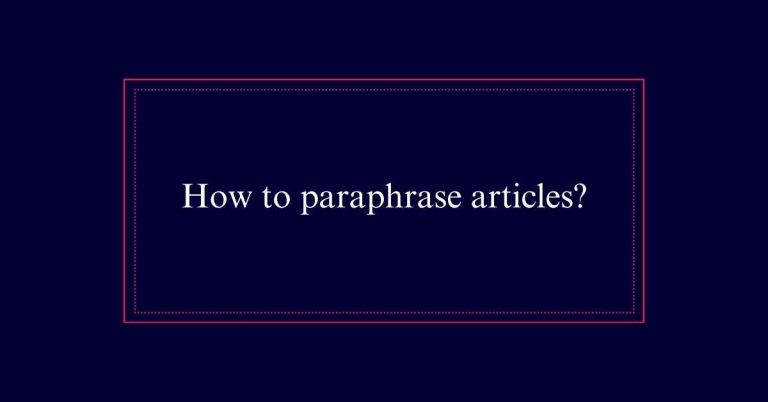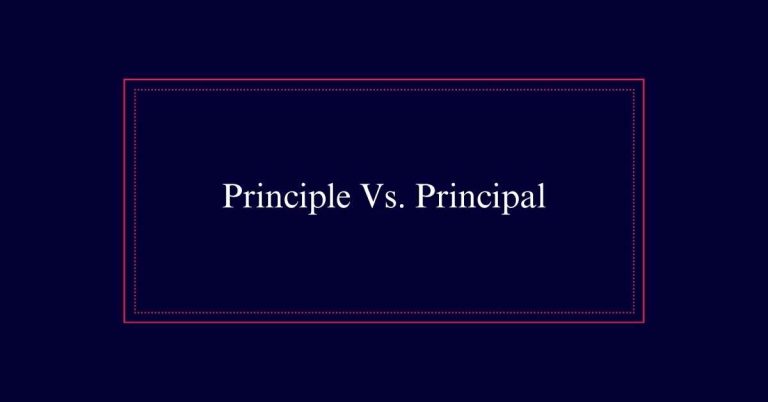What Is a Glossary?
A glossary is a specialized list of terms with their definitions, typically positioned at the end of a book or document. It functions like a mini-dictionary, providing clear and concise definitions for complex or uncommon words.
Glossaries are especially useful in academic and technical texts, helping to reduce confusion and enhance comprehension. They organize terms alphabetically and often use bold or italic formatting for terms, ensuring easy reference. This aids readers in quickly finding and understanding specialized jargon, thereby improving the overall learning experience.
Definition of a Glossary
A glossary is a special section in a book that provides definitions for complicated or uncommon words used in the text. It functions like a mini-dictionary, with terms organized alphabetically.
Each entry is written in plain language to guarantee clarity. This section is particularly useful in academic works, such as research papers or theses, where specialized terminology is common.
Placement in Books
Typically, glossaries are placed at the end of books for easy reference. This placement allows readers to quickly find definitions for complex or specialized terms without interrupting the flow of reading. By situating the glossary at the book’s conclusion, it acts as a handy tool, especially for academic and technical works.
Readers can flip to this section when they encounter unfamiliar terminology, ensuring comprehension and enhancing their overall reading experience. Additionally, having the glossary at the end maintains the book’s structure and readability, as the main content remains uninterrupted by definitions.
Organization and Format
Glossaries are organized alphabetically to guarantee quick and easy access to term definitions. This arrangement helps readers efficiently find terms without unnecessary searching.
Each entry typically starts with the term in bold or italics, followed by a concise definition in plain language. This format ensures clarity and ease of understanding. Additionally, some glossaries may include phonetic pronunciations or examples of usage to aid comprehension.
Consistency in formatting is essential; it maintains readability and professionalism. Glossaries are usually placed at the end of a document, making them accessible without interrupting the main text.
Purpose and Usage
In written works, the primary purpose of a glossary is to provide clear definitions for uncommon or specialized terms. Glossaries are particularly useful in academic papers, textbooks, and technical documents.
They help readers understand specific jargon or complex vocabulary related to the subject matter. By listing terms alphabetically, glossaries enable quick and easy reference, saving readers the time and effort of consulting external dictionaries. Each term is explained in plain language, ensuring that even those unfamiliar with the topic can grasp the meaning.

Additionally, glossaries are tailored to include only the words used in the work, making them highly relevant and specific to the context of the material.
Benefits for Readers
By offering precise definitions, glossaries enhance readers’ understanding of specialized terms in a text. They provide immediate clarification, allowing readers to grasp complex concepts without interrupting their reading flow. This is particularly valuable in academic and technical works, where jargon can be dense and challenging.
A glossary also saves time, as readers do not need to consult external dictionaries. It guarantees that everyone has access to the same definitions, promoting consistency in understanding. Additionally, glossaries can improve retention of information by providing clear and concise explanations.
This makes the material more accessible to a wider audience, including those less familiar with the subject matter.
Examples of Glossary Terms
A well-crafted glossary includes terms like ‘adjective,’ which describes a noun by naming an attribute. Such glossaries are essential for understanding specialized content.
Here are examples of common glossary terms:
- Adverb: Modifies or describes a verb, adjective, or another adverb.
- Apostrophe: A punctuation mark used for possessive forms and contractions.
- Noun: A word that represents a person, place, thing, or idea.
- Verb: A word that represents an action or state of being.
- Preposition: A word used to show the relationship between a noun (or pronoun) and other words in a sentence.
Academic Applications
Given their role in providing clear definitions, glossaries are invaluable in academic works. They help students and researchers understand specialized terminology used in their fields. By offering precise definitions, glossaries make complex texts more accessible. They save time by eliminating the need to consult external dictionaries.
This is particularly important in disciplines like science, medicine, and law, where terminology can be dense and highly specific. Including a glossary guarantees that all readers, regardless of their background knowledge, can grasp the material. Additionally, glossaries contribute to greater consistency in understanding and using terms.
Citation Guidelines
Proper citation guidelines are essential for maintaining academic integrity when referencing glossary entries. When using definitions from a glossary, it is important to follow specific citation rules. These rules may vary depending on the style guide being used, such as APA or MLA.
Here are some key points to keep in mind:
- Cite the glossary entry if it is quoted directly in your work.
- Use the correct format for in-text citations and bibliographies.
- Include the page number where the glossary entry is found, if applicable.
- Maintain consistency in citation style throughout your document.
- Utilize citation generators for accuracy and ease.
Glossary Vs. Dictionary
In written works, distinguishing between a glossary and a dictionary is important for understanding their specific functions and contexts. A glossary includes definitions of terms specifically used within a particular book or article. It is typically found at the end of the work and is intended to help readers quickly understand specialized vocabulary.
In contrast, a dictionary provides definitions for a wide range of words in general use across various contexts. It is a thorough resource that includes pronunciation, usage, and etymology.
Here is a comparative table:
| Feature | Glossary | Dictionary |
|---|---|---|
| Scope | Specific to a particular work | General and thorough |
| Location | At the end of a book or document | Standalone reference book |
| Content | Terms and jargon from the specific work | Words from all areas of language |
| Purpose | Quick reference for specific terms | Detailed definitions and broader language use |
Glossary Vs. Index
A glossary and an index serve different but equally important functions in a book. A glossary provides definitions for complex terms used in the text, aiding comprehension.
Conversely, an index helps readers locate specific topics or subjects within the book by listing related page numbers.
Key differences include:
- Glossary: Defines specialized terms.
- Index: Indicates where topics are discussed.
- Glossary: Arranged alphabetically by keyword.
- Index: Lists topics alphabetically with page numbers.
- Glossary: Enhances understanding of terminology.







